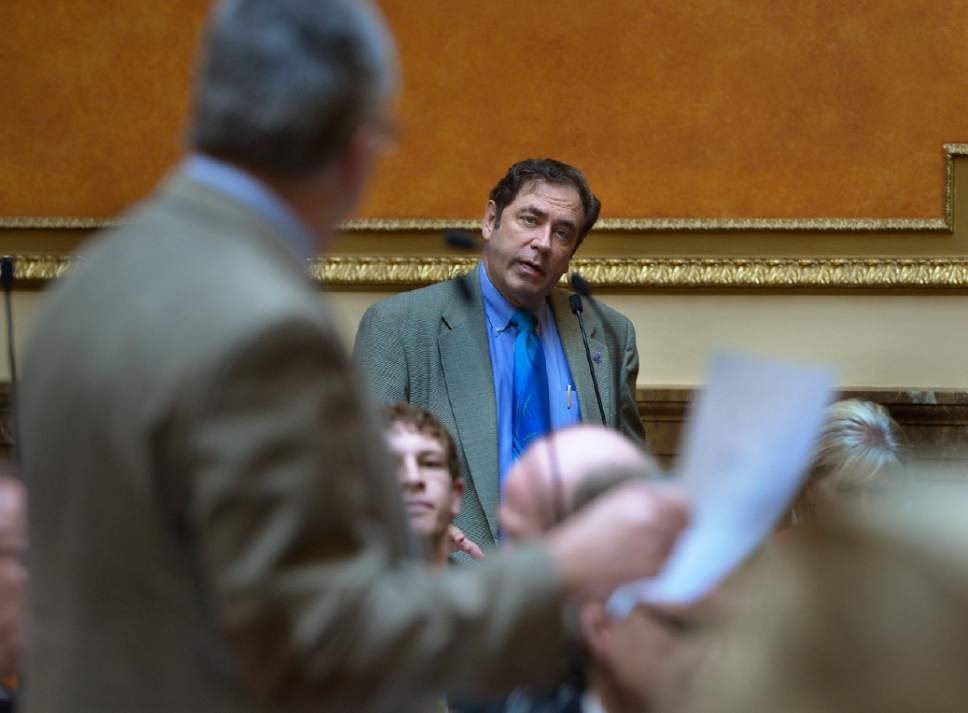This is an archived article that was published on sltrib.com in 2017, and information in the article may be outdated. It is provided only for personal research purposes and may not be reprinted.
A dozen cities in Utah now offer landlords financial incentives not to rent to people with criminal records — but legislation is advancing to stop the practice.
The House Business and Labor Committee voted 8-5 Wednesday to endorse HB178, and sent it to the full House.
"Government shouldn't be able to coerce business owners to deny housing. It isn't right," said the bill's sponsor, House Minority Leader Brian King, D-Salt Lake City. He said ex-criminals are more likely to relapse "if they can't find housing."
At issue are "good landlord" programs operated by cities to give discounts on fees to landlords who choose to follow a variety of guidelines.
Twelve cities in Utah include in their programs penalties if landlords rent to people with felony convictions, according to the Utah League of Cities and Towns.
As an example of incentives, Ogden officials say they charge a $7 per unit fee for large apartment complexes that participate in its good landlord program — which includes a ban on renting to released felons — and charge $82 per unit for others.
Mark Johnson, Ogden chief administrative officer, testified his city created its program because a halfway house there had led to a concentration of criminals renting in the same area. He said the program helped disperse them.
He said the city thought it had worked out a compromise to avoid the current proposed change, and feels a bit betrayed that King's bill is advancing.
Johnson noted that last year, the Legislature permitted Ogden to try a pilot program. It allows corrections officers to do a risk assessment on criminals being released, and give them a "thumbs up or down" as risks to landlords.
Those receiving approval as low-risk receive a city waiver allowing participants in the good landlord program to rent to them without penalty.
Ogden officials argued it gives landlords confidence to rent to some people with criminal records, and may actually increase the number of offenders who are able to find apartments. It said it helped 58 people with criminal records rent since October.
Rep. Gage Froerer, R-Huntsville, a realtor, supported Ogden's position. "As a landlord, I would feel much more secure renting to felon who comes out with a waiver."
However, Anna Thomas with the American Civil Liberties Union said the problem with Ogden's plan is that it helps only those being released from prison now — and doesn't help people who have completed parole long ago or were in the federal correctional system.
King said it also continues allowing a city to give landlords incentives not to rent to someone.
He said nothing prohibits landlords from doing background checks on their own and renting to whom they please — but said government should not coerce them into that decision. His bill was supported by groups including Utah Adult Probation and Parole, the Utah Sentencing Commission and the Utah Commission on Criminal and Juvenile Justice.



